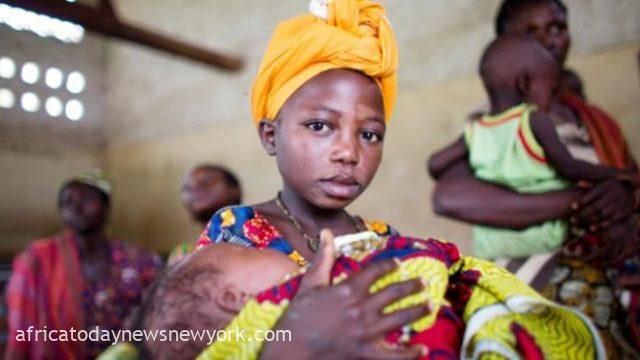The United Nations Children’s Fund (UNICEF) has revealed that there are approximately 25 million child brides in Nigeria at the moment.
This is just as the Federal Government commenced engagements with UNICEF, United Nations Population Fund (UNFPA) and other stakeholders to end the practice of early child marriage in the country.
Speaking at a national dialogue on ending child marriage in Nigeria held in Abuja, the UNICEF Country Representative, Ms Cristian Munduate, noted that the child marriage phenomenon is prevalent in Bauchi, Jigawa and Zamfara.
Munduate said that child marriage is a harmful practice under international human rights law which is often associated with severe forms of violence against women and girls, including intimate partner violence.
“In Nigeria, there are nearly 25 million child brides with alarming prevalence rates in states such as Bauchi that has 74 percent child brides.
“Also, Jigawa has 72 percent of its children getting married before the age of 18, Katsina has little less at 69 percent and Zamfara has nearly 67 percent of its children getting married.’’
Read Also: UNICEF Seeks $2B For Humanitarian Aid In West Central Africa
While calling for more investment in education for all children, the country representative said the practice of child marriage not only violated human rights but also hindered Nigeria’s social and economic development.
“A recent study by the Federal Ministry of Women Affairs and UNICEF estimates an annual cost of $10 billion as economic burden of child marriage to the nation.
“The study also projects a potential GDP boost of nearly 25 percent upon its eradication.
“The consequences of child marriage ripple through society, impacting not only the lives of child brides but also the entire fabric of our nation,” she said.
Also speaking at the event, Deputy Representative, UNFPA, Mr Koessan Kwawu, said that the practice had adverse effects on the health, education and future opportunities of the child.
He called on stakeholders to seek an end to the practice.
On her part, Minister of Women Affairs, Mrs Uju Kennedy-Ohanenye, stressed on the role of all stakeholders in meeting the target of ending child marriage by 2030.
Kennedy-Ohanenye said there was a need to educate and engage traditional, religious women groups and other stakeholders at the community level on the negative effects of the practice on the girl-child

